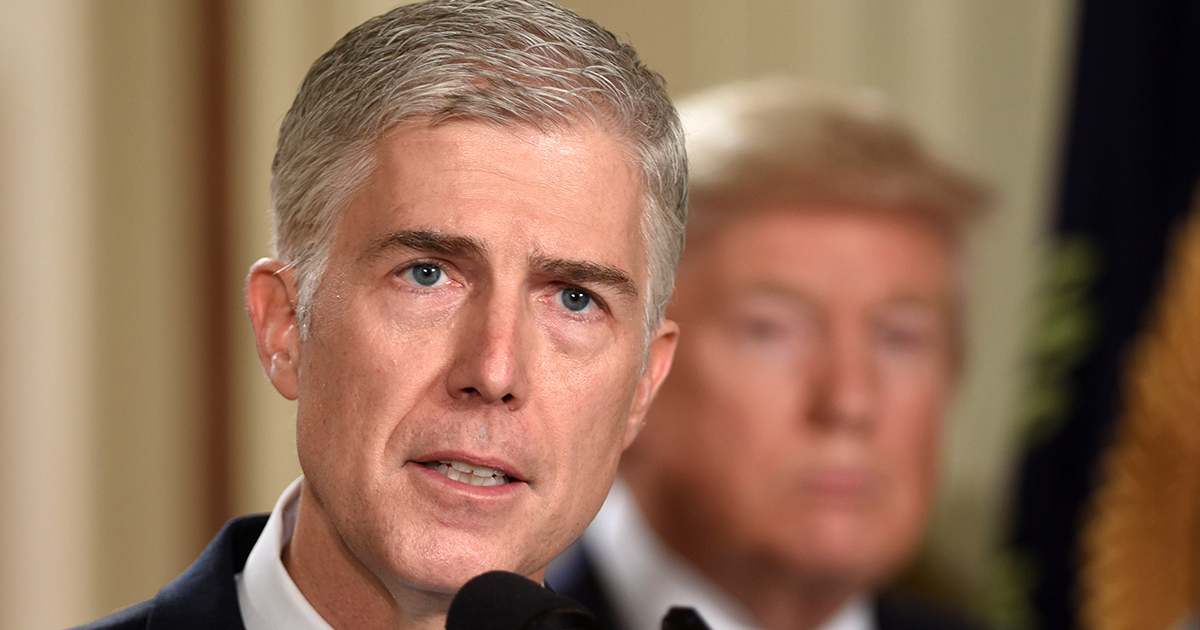Why Judge Neil Gorsuch Refused to Answer Certain Questions

By:
If you've been following this week's confirmation hearings for President Donald Trump's Supreme Court nominee, you might have noticed that a lot of questions posed to Judge Neil Gorsuch have gone unanswered.
 AP/Riccardo Savi - apimages.com
AP/Riccardo Savi - apimages.com
There's a reason for Gorsuch's unwillingness to speak, as he repeatedly reminded senators after declining their inquiries. Judicial ethics rules — outlined in the U.S. Courts' code of conduct — advises that "A Judge Should Refrain from Political Activity."
The Federal Judicial Center's interpretation of the code of conduct is clear:
"You may register with a political party and vote in partisan and nonpartisan primary and general elections. You may express a personal opinion privately, for example, to a family member or friend. But be careful not to express your political opinions to broader audiences."
After Tuesday's hearing, some are questioning the logic behind that guidance.
From a judicial ethics standpoint, the code of conduct is intended to maintain a separation between the world of politics and the independent judiciary. Federal judges are able to register with a political party and vote in primary and general elections, but they can't participate in political activities, endorse candidates, or publicly share their political views. That said, there's little doubt that unspoken partisan ideologies permeate the judicial branch.
"It's a fiction, but it's a useful fiction," Adam Winkler, a professor at UCLA Law School who specializes in constitutional law, told ATTN:. "It's a fiction that judges are going to be completely impartial, but the reason why we have them wear those robes is because we want to give them an identity as someone who does not base their decisions on their own personal predilection."
Though Gorsuch denied the existence of "a Republican judge or a Democratic judge" and took issue with characterizations of judges as "politicians in robes," there's evidence that truly independent judges are a rare breed, as The Washington Post's Christopher Ingraham wrote. Ingraham cited a 2015 paper from a pair of Harvard University researchers who analyzed political contributions by lawyers who went on to serve as judges from 1979 to 2012, which found a glaring partisan divide in contributions.
.png?auto=format&crop=faces&fit=crop&q=60&w=736&ixlib=js-1.1.0) The Washington Post - washingtonpost.com
The Washington Post - washingtonpost.com
The researchers found "strong evidence of politicization in the federal courts and also in state high courts," according to the paper.
The potential issue with the code of conduct Gorsuch rigorously adhered to was amplified during his confirmation hearing. The judge refused to state his opinion on same-sex marriage or weigh in on Republicans' denial of a hearing for former President Barack Obama's Supreme Court pick, Judge Merrick Garland, among other issues he regarded as political. Having that kind of information could have arguably influenced how members of the Senate Judiciary Committee vote on Gorsuch's confirmation.
Still, Winkler said that "while we know that judges are human beings and they're going to fail to live up to the promise of impartiality," it's nonetheless "important that they continue to claim adherence to those principles." Impartiality is a "core judicial value," he said, and the code of conduct is designed to support that value.
